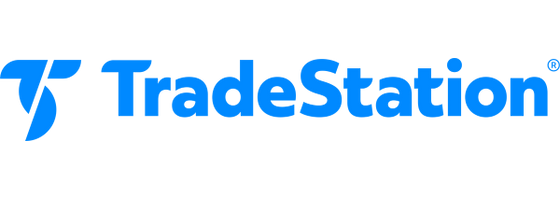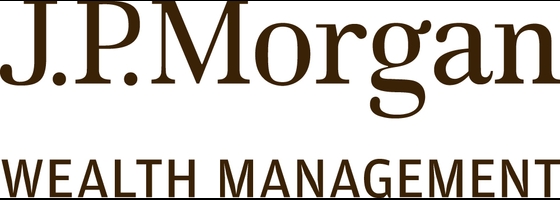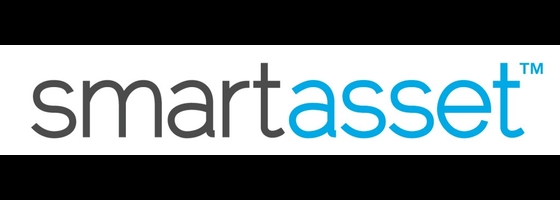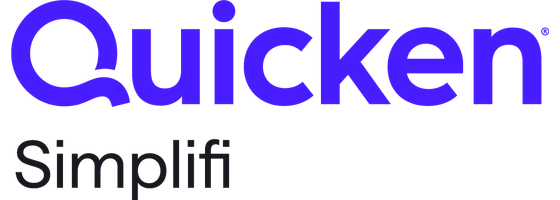Our evaluations and opinions are not influenced by our advertising relationships, but we may earn a commission from our partners’ links. This content is created independently from TIME’s editorial staff. Learn more about it.
Many investors want to save for retirement, a house down payment, college, or other financial goals, but they’re unsure how to start. Even those who have been saving for a while don’t know if they’re doing it correctly. The good news is that financial advice doesn’t have to cost a lot of money. To help you reach your financial goals, we collected a number of free strategies to reduce expenses, save more, and invest better.
1. Online brokers
Online brokers make it affordable for the average investor to buy stocks, bonds, mutual funds, and other investments. Many online brokers offer discounted or free commissions without requiring a large investment balance. While you won’t have a dedicated investment advisor, their sites typically have free financial lessons to help you become a better investor.
TradeStation is an online brokerage platform that allows customers to buy stocks, mutual funds, and ETFs. Customers can also trade options, futures, and cryptocurrency. The company features a trading simulator where you can learn and test out investing strategies in real time or by using historical data without risking a single dollar. It also offers powerful tools, market research, and advanced educational resources to improve your trading skills and grow your portfolio.

TradeStation
TradeStation
$0 stock & ETF trades.
$0.60/contract options trades.
$1.50/contract futures trades.
$14.95 mutual fund trades.
2. Investment advisors
Investment advisors recommend investments that match your financial goals. They typically charge commissions or advisory fees in exchange for their services. As part of these services, you can ask them questions about investments, retirement plans, and other related topics.
J.P. Morgan Wealth Management is one of the most well-known names in the financial services industry. Not only do its advisors provide financial advice; its Chase Bank subsidiary also offers a full-service bank to handle all of your banking, borrowing, and investing needs. When working with J.P. Morgan, you'll have a single point of contact for all your financial needs and money questions.

J.P. Morgan Personal Advisors
J.P. Morgan Personal Advisors
Details
- Connect with a J.P. Morgan team member to schedule a free financial planning session. Call 833-930-4515 or fill out our contact form and we'll be in touch.
- Work with a team of fiduciary advisors who will create a personalized financial plan, match you to expert built portfolios and provide ongoing advice via video or phone.
- Partner with an advisor to build a personalized financial plan based on what's important to you—whether that's paying off debt, opening a business or saving for a big purchase.
- Get matched to expert-built portfolios, and receive ongoing advice and annual check-ins to ensure your plan is on track.
- Our team of advisors act as fiduciaries so you can be confident that any advisor you work with has your best interest at heart.
- Manage all of your banking, investing and borrowing, and conveniently transfer money online and on the Chase Mobile® app.
- Once we understand your financial picture, risk tolerance and time horizon, we’ll recommend a professionally designed investment portfolio that meets your needs and automatically rebalance as the market shifts.
INVESTMENT AND INSURANCE PRODUCTS ARE: NOT A DEPOSIT • NOT FDIC INSURED • NO BANK GUARANTEE • MAY LOSE VALUE
Disclosures
INVESTMENT AND INSURANCE PRODUCTS ARE: NOT A DEPOSIT • NOT FDIC INSURED • NO BANK GUARANTEE • MAY LOSE VALUE
J.P. Morgan Wealth Management is a business of JPMorgan Chase & Co., which offers investment products and services through J.P. Morgan Securities LLC (“J.P. Morgan”), a registered broker dealer and investment adviser, member FINRA and SIPC. TIME Stamped is a publisher of J.P. Morgan, (“Publisher”). The Publisher will receive compensation from J.P. Morgan if you provide contact details to speak with a J.P. Morgan representative. Compensation paid to the Publisher will be up to $500 per completed contact form. Compensation provides an incentive for the Publisher to endorse J.P. Morgan and therefore information, opinions, or referrals are subject to bias. J.P. Morgan and the Publisher are not under common ownership or otherwise related entities, and each are responsible for their own obligations. Investing involves market risk, including possible loss of principal, and there is no guarantee that investment objectives will be achieved.
If you're unsure of where to find a financial advisor, SmartAdvisor by SmartAsst helps match investors with advisors. Additionally, investors can learn about almost any investing topic, including what advisors do and how much they cost. Other educational topics highlight how to improve your portfolio, how you stack up against other investors, and retirement-planning guides.

SmartAdvisor by SmartAsset
SmartAdvisor by SmartAsset
3. Budgeting and financial planning apps
Mobile apps for budgeting and financial planning allow savers to manage their finances from their phones, tablets, and web browsers. These apps tend to offer personal finance lessons for free to their users to help them reach their goals. Some offer personalized guidance based on your answers to quick surveys or selected goals.
One of the best financial planning apps is Monarch Money, because you can track all of your account balances, transactions, and investments in one place. It also makes it easy to collaborate with your partner to get a shared view of what's happening with your money. Users can customize dashboards and charts while tracking progress toward their goals.

Rocket Money
Rocket Money
For investors who just need help with budgeting, one of the best apps is Simplifi by Quicken. With this easy-to-use app, you can stay on top of your finances in under five minutes per week. It helps users uncover ways to save more money, create a personalized budget, and stay on top of monthly bills. Plus, it automatically tracks your spending against your goals. Simplifi by Quicken is one of the best Mint alternatives. It offers new users a 50% discount.

Simplifi
Simplifi
Taxes are an important part of your finances. For freelancers and the self-employed, FlyFin uses a combination of technology and human expertise to prepare your taxes and reduce your tax liability. Artificial intelligence (AI) combs through your accounts to look for deductions, and CPAs file your taxes with an average savings of $3,700 per year. It offers three subscription levels starting at $7 per month (billed annually), depending on your needs and budget.
RELATED: Best Mint Alternatives
4. Robo-advisors
Robo-advisors are investing apps that offer predetermined portfolios based on your financial goals. Some robo-advisors enable investors to create personalized portfolios based on industry sectors, geography, company size, and other metrics. As part of their services, robo-advisors typically offer financial tools and personal-finance education lessons to customers.
Robinhood, frequently ranked as one of the best online brokers, is seemingly perfect for those looking to trade stocks, ETFs, and crypto, all on one platform. It has an easy-to-use mobile app and fee-free service.

Robinhood
Robinhood
5. Your bank or credit union
Banks and credit unions typically offer more than just deposit and loan products. Many also sell investments to customers through branch employees or financial advisors. Your bank or credit union may also offer free financial education through webinars, online videos, courses, and tools, as well as in-person instruction at their branches.
Axos Bank is an online bank offering bank accounts, loans, mortgages, and investments. It shares personal finance best practices through its blog articles, podcast, and YouTube channel. You can also sign up to receive an email with money tips every two weeks. Additionally, the bank has online tools and calculators to help you make smart money decisions.
6. Employer 401(k) provider
Automatic contributions from your paycheck into your company's retirement plan are an excellent first step in saving for retirement. Regular contributions combined with an employer match help many workers build a solid financial future. In addition to offering a workplace retirement plan, many companies offer free financial education through the plan administrator, such as Vanguard or Fidelity. These online lessons focus on important topics, such as paying off debt, budgeting, saving for college, and investing.
7. Consumer Financial Protection Bureau (CFPB)
The Consumer Financial Protection Bureau (CFPB) is a government agency that seeks to educate consumers and ensure fair treatment by banks, lenders, and other financial institutions. Its resources offer consumer education on loans, credit card, debt collection, mortgages, and more. In addition, if you’ve been treated unfairly by a lender, you can submit a complaint through the CFPB website. So far the CFPB has handled more than 3.9 million consumer complaints that have resulted in more than $17 billion in financial relief.
8. Public resources
Many public agencies and consumer groups offer free financial education online and in their local offices. These organizations also often provide free counseling and other resources that are funded through government grants, tax dollars, donations, and nominal fees.
One of these agencies is the Consumer Credit Counseling Service (CCCS). It is a 501(c)3 nonprofit that offers financial education, budgeting assistance, and debt-management plans. Its website includes numerous personal-finance education classes, and CCCS also hosts virtual classes and webinars. Consumers can take advantage of free financial calculators, guides, planning tools, and courses.
9. Online resources
Countless websites offer free financial advice on topics ranging from debt payoff to investing to earning extra money through side hustles. With so many voices online, you should find someone who speaks to you, as it's easier to follow expert advice if you can relate to the author. Their information is available through a variety of platforms, including blogs, social media, YouTube, and podcasts. This allows investors to choose whichever method works best for them.
Free online courses are available on numerous online portals, such as Udemy Personal Finance 101, Khan Academy, and McGill Personal Finance Essentials. Many public and private universities, such as Brigham Young University’s Personal Finance, University of Illinois Urbana-Champaign's Financial Planning for Young Adults, MIT Open Courseware, and Duke University's Behavioral Finance Course, also offer free personal finance courses.
SmartAsset has articles, financial calculators, and guides on numerous topics, including home buying, retirement, taxes, credit cards, life insurance, and more. You can access these resources for free and implement strategies on your own, or SmartAsset will introduce you to prescreened matches with financial advisors.
10. Industry pro-bono groups
Many organizations in the personal finance industry offer free advice to help consumers improve their finances. These industry groups support the mission of their members and provide assistance to the community. Some offer overall financial advice, while others focus on specific areas of your finances.
The Foundation for Financial Planning is a nonprofit charity that expands access to pro-bono financial planning for people in crisis or need. The charity links volunteer financial planners to underserved populations to provide free quality advice. Consumers can also access free workbooks and worksheets for financial topics such as making a budget, setting money goals, and creating a family balance sheet.
The Jump$tart Coalition consists of more than 100 organizations that work to advance financial literacy in students and young adults. It sponsors Financial Literacy Month every April by holding virtual and in-person events across the county to encourage students to learn about money topics. The coalition provides resources for teachers and educators to teach money lessons based on topic, grade level, and other factors.
11. Financial Planning Association (FPA)
The Financial Planning Association (FPA) is a membership organization for certified financial planners with local chapters throughout the U.S. While many of its members charge for their services, the FPA Pro Bono Program serves communities in need. FPA chapters and members volunteer their time to provide one-on-one free financial planning to thousands of consumers each year.
Time Stamp: Free financial education is available for the taking
Learning better money skills doesn’t require getting an MBA or paying someone a lot of money. There are numerous free financial resources available to learn about investing, saving, debt payoff, and other money topics. In fact, many of the financial institutions, mobile apps, and advisors you’re already working with could have all the answers you need. If they don’t, they can recommend reliable sources, such as the CFPB, FPA, and other industry, nonprofit, or government organizations.
Frequently asked questions (FAQs)
How do I speak with a financial advisor for free about student loans?
Many financial advisors offer comprehensive financial advice, including how to pay off student loans and other debt. One of these student loan lenders is Ascent, which offers loans for undergraduate and graduate degrees, coding boot camps, and career training. In addition to funding student loans, it provides financial wellness strategies, budgeting tips, and career advice.
Where can I get good free financial advice to improve my credit score?
All three major credit bureaus—Experian, Equifax, and TransUnion—offer free lessons on how to improve your credit score. Learning which factors make up a credit score and how they’re affected is a solid first step. To provide a quick boost to your credit score, consider signing up for Experian Boost. It can instantly increase your score with nontraditional payment factors, such as cellphone and utility bills, rent payments, and Netflix subscriptions.
Where can I get free financial advice on buying a second home?
Buying a second home allows homeowners to capitalize on rising real estate values through a vacation home or rental property. To learn more about buying a second home or rental property, try BiggerPockets, which is the largest online community for real estate investors.
Where can I get free financial advice on buying a better home than where I live now?
If you're looking to buy a new home before you sell your current home, certain companies offer "trade-in mortgage." These loan programs enable homeowners to use home equity to buy a new home before selling their current house.
The information presented here is created independently from the TIME editorial staff. To learn more, see our About page.

